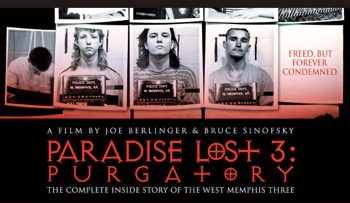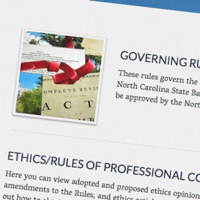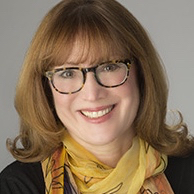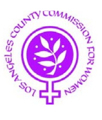Rascals case in brief
In the beginning, in 1989, more than 90 children at the Little Rascals Day Care Center in Edenton, North Carolina, accused a total of 20 adults with 429 instances of sexual abuse over a three-year period. It may have all begun with one parent’s complaint about punishment given her child.
Among the alleged perpetrators: the sheriff and mayor. But prosecutors would charge only Robin Byrum, Darlene Harris, Elizabeth “Betsy” Kelly, Robert “Bob” Kelly, Willard Scott Privott, Shelley Stone and Dawn Wilson – the Edenton 7.
Along with sodomy and beatings, allegations included a baby killed with a handgun, a child being hung upside down from a tree and being set on fire and countless other fantastic incidents involving spaceships, hot air balloons, pirate ships and trained sharks.
By the time prosecutors dropped the last charges in 1997, Little Rascals had become North Carolina’s longest and most costly criminal trial. Prosecutors kept defendants jailed in hopes at least one would turn against their supposed co-conspirators. Remarkably, none did. Another shameful record: Five defendants had to wait longer to face their accusers in court than anyone else in North Carolina history.
Between 1991 and 1997, Ofra Bikel produced three extraordinary episodes on the Little Rascals case for the PBS series “Frontline.” Although “Innocence Lost” did not deter prosecutors, it exposed their tactics and fostered nationwide skepticism and dismay.
With each passing year, the absurdity of the Little Rascals charges has become more obvious. But no admission of error has ever come from prosecutors, police, interviewers or parents. This site is devoted to the issues raised by this case.
On Facebook
Click for earlier Facebook posts archived on this site
Click to go to
Today’s random selection from the Little Rascals Day Care archives….
Click for earlier Facebook posts archived on this site
Click to go to
Today’s random selection from the Little Rascals Day Care archives….
That’s our case, and we’re sticking to it (cont.)
 Feb. 1, 2012
Feb. 1, 2012
The HBO documentary “Paradise Lost 3: Purgatory” surely deserves its Oscar nomination, although the only edge it holds over Ofra Bikel’s “Innocence Lost” trilogy of the ’90s is its happy-tears finale: the three defendants walking out of prison.
After much lawyering, the West Memphis Three in August accepted an Alford plea that allowed them to go free, while protecting the state of Arkansas from a wrongful-imprisonment suit and the national embarrassment of a retrial.
I had to laugh at this exchange from the ensuing press conference:
Reporter: “Will the state continue to investigate this case if additional information is brought forth, or is the case closed?”
Prosecutor Scott Ellington: “I have no reason to believe there was anyone else involved in the homicides of these three children but the three defendants who pled guilty today.”
Defense attorney Dennis Riordon: “Does anyone believe that if the state had even the slightest continuing conviction they were guilty that it would have let these men go free today?”
If H.P. Williams Jr., Nancy Lamb and Bill Hart were watching – unlikely, given the spotlight shone on unjust prosecution – no doubt they would have admired Ellington’s resolve in the face of reality.
Ever so slowly, progress made toward DAs’ accountability

ncbar.gov
July 1, 2016
“Prosecutors should have to disclose evidence of innocence obtained after a person is convicted, a North Carolina State Bar panel agreed Wednesday.
“The ethics subcommittee voted 3-2 at a meeting in Greensboro to support the general principle that a prosecutor’s duty to disclose innocence evidence continues after a defendant is sentenced, although the members didn’t settle on specific language. A federal prosecutor and a former district attorney opposed the motion, while three attorneys in private practice supported it….
“The North Carolina Conference of District Attorneys had said in a letter to the State Bar that prosecutors say that the rule is unnecessary….
“The panel is just the first step in a lengthy process that – if the rule is approved at each step – involves the full ethics committee, public comment, the full State Bar Council and finally, the state Supreme Court.”
– From “NC panel: Innocence evidence right continues after sentence” by Martha Waggoner of the Associated Press (June 29)
Read more here.
![]()
….Is APSAC finally ready to apologize to wrongfully prosecuted victims?

janetrosenzweig.com
Dr. Janet Rosenzweig
Oct. 22, 2016
“At APSAC’s June Colloquium, Paul J. Stern gave a presentation that clearly acknowledged your organization’s role in fostering the ‘satanic ritual abuse’ day-care panic of the 1980s and early ’90s.
“Mr. Stern, a prosecutor and longtime APSAC official, was only illuminating from the inside a reality long recognized among virtually all respected professionals and academics.
“I am writing today to request that the American Professional Society on the Abuse of Children formally renounce its advocacy of the ‘satanic ritual abuse’ myth and apologize to its victims. The ‘misguided ideas’ cited by Mr. Stern not only supported wrongful prosecutions and incarcerations, but also profoundly misled children, parents and the public.
“The reputation of APSAC will remain tainted as long as it fails to make amends for this seminal part of its history. If the International Association of Chiefs of Police can apologize for ‘the actions of the past and the role that our profession has played in society’s historical mistreatment of communities of color,’ then surely APSAC can similarly mitigate the damages caused by its own actions.”
– From a letter I sent to Dr. Janet Rosenzweig, executive director, American Professional Society on the Abuse of Children
![]()
Reality notwithstanding, ritual-abuse report lives on
 Nov. 26, 2012
Nov. 26, 2012
Although no mention of the notorious Report of the Ritual Abuse Task Force is to be found on the Los Angeles County Commission for Women web site, I was curious whether an original booklet might still be available.
Sure enough, a few weeks after I mailed my request to the commission a pristine copy arrived. The text is widely available online, but somehow the experience of holding and reading it is even… creepier.
“Ritual abuse is a serious and growing problem in our community and in our nation…,” it begins. “Society is only just beginning to recognize the gravity and scope…. Parents need to be educated about the hallmarks of this abuse occurring in preschools and day care centers….
“The ritual abuse in such an institutional setting is not incidental to its operation, but is in fact intrinsic, the very reason for the institution’s existence….
“To victimize and indoctrinate as many young children as possible, (ritual abusers) frequently function together in groups in the operation of preschools, day-care services and baby-sitting services, providing themselves access to children outside of their own families.”
Even now, when the case for ritual abuse no longer draws a crowd, the Report of the Ritual Abuse Task Force continues to be cited respectfully, as in “Healing the Unimaginable: Treating Ritual Abuse and Mind Control” (2011), “If the West Falls: Globalization, the End of America and Biblical Prophecy” (2011) and “Healing the Soul after Religious Abuse: The Dark Heaven of Recovery” (2009).
What must it take to slay the ritual-abuse dragon – a stake through the heart?











0 CommentsComment on Facebook